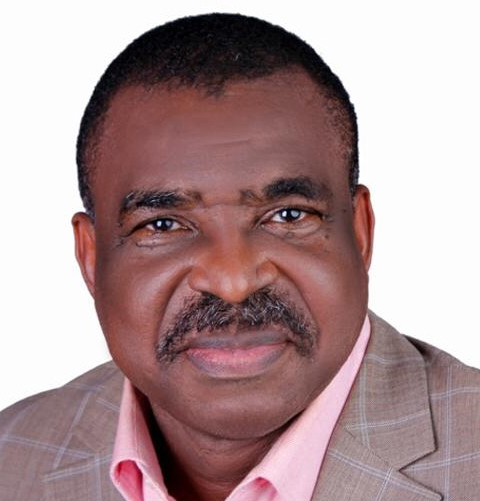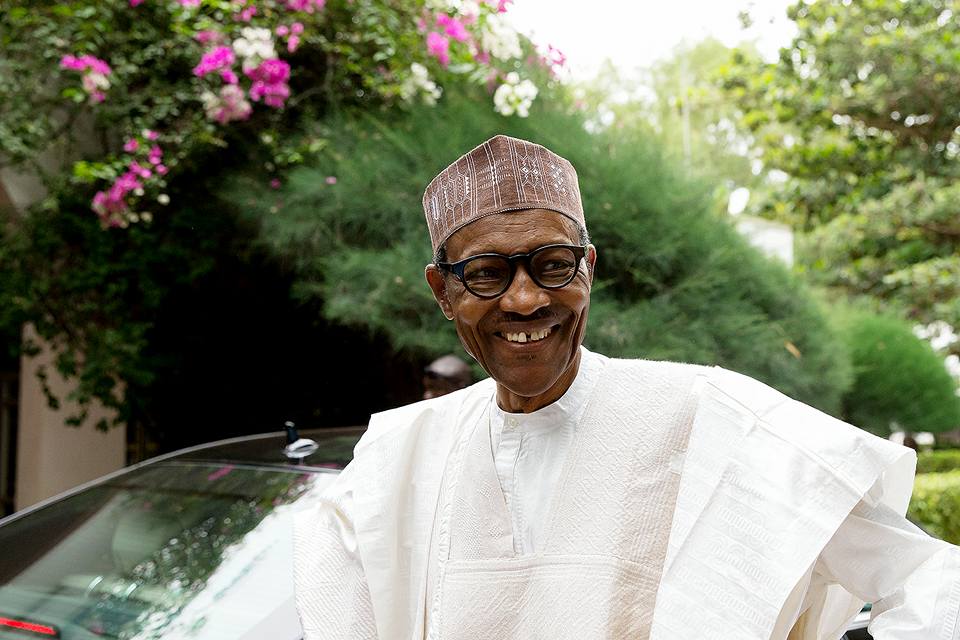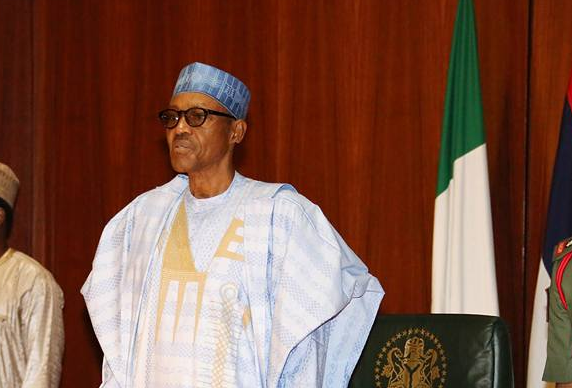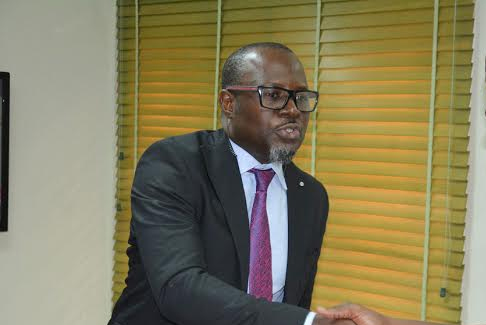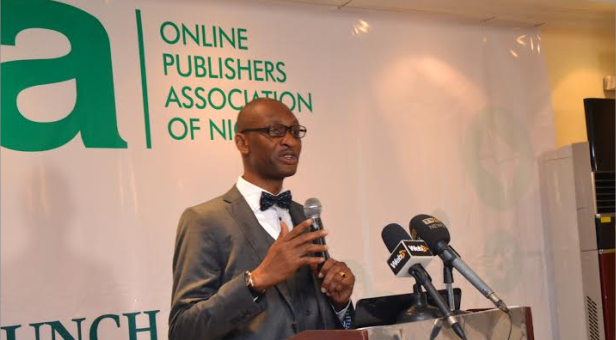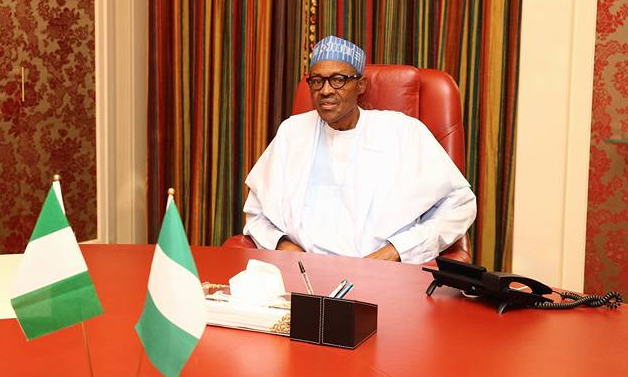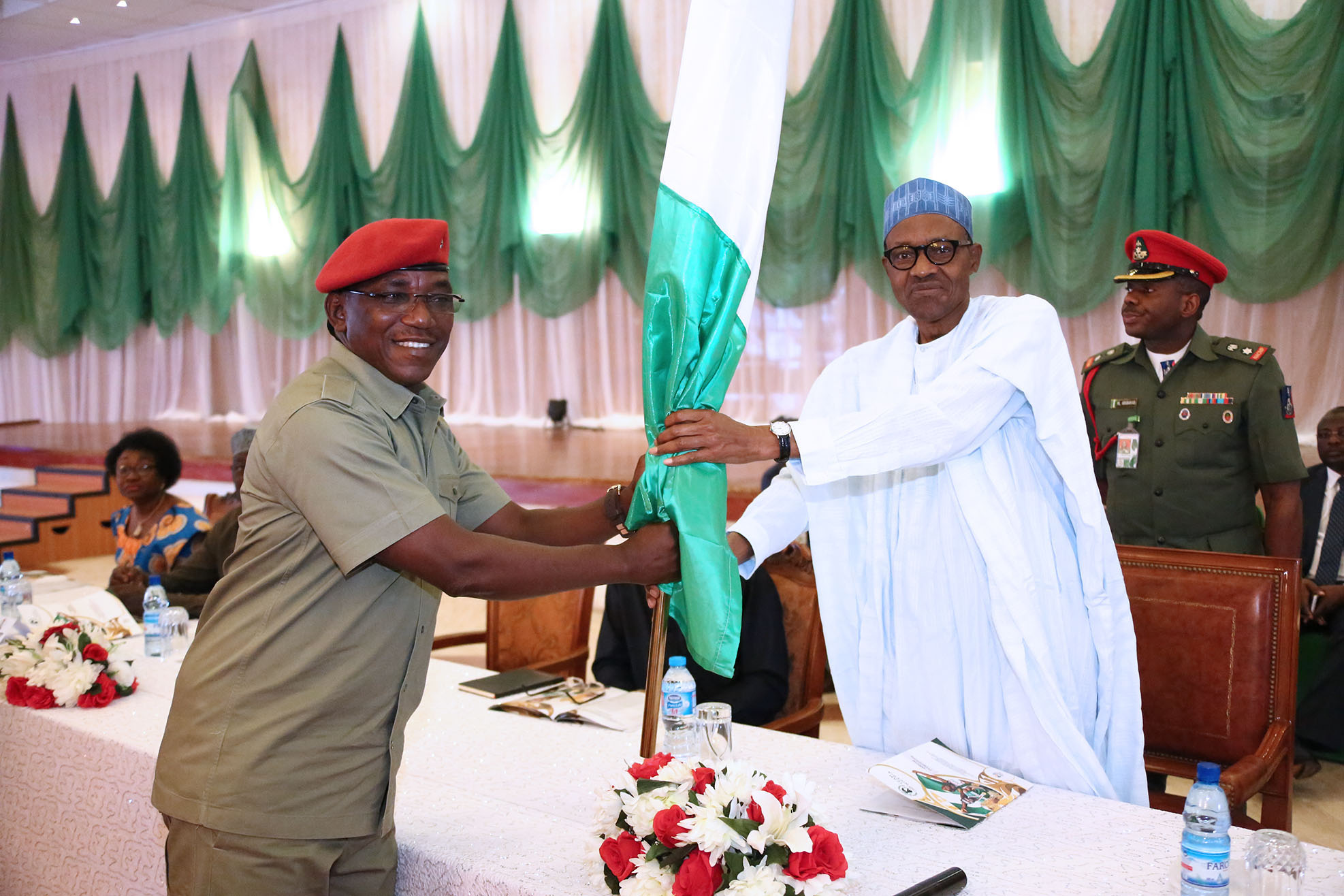Finally, our dear president Muhamadu Buhari has admitted that his policy actions or inactions are hurting Nigerians, at least in the interim, if not long term and he has thus appealed to them for patience during the ‘feast of sacrifice’ recently observed by Muslims.
Evidence of change of strategy from channelling all energy into anti corruption war in the past sixteen, 16 months by the presidency is the decision to organize an economic focus session between members of the public and private sectors where more attention would be paid to how to lift Nigerian economy out of the current recession through innovative solutions.
With the current nudge and bullishness by president Buhari towards the economy, through the unusual search for solutions from public and private sector members of Nigerian society,l can recall a recommendation earlier made to Delta state governor, Ifeanyi okowa by Charles Soludo , at a forum, where the former CBN governor was a keynote speaker.
In the course of delivering his lecture, Soludo told Okowa to lock up all the successful and affluent sons and daughters of the state in a room with the single mandate of coming up with solutions to the myriads of challenges shackling the state before they could be let off.
Advertisement
The charge which was made during the recent Delta state economic summit,held as part of activities marking the 25th anniversary of the state’s creation a fee weeks ago, was reinforced by finance minister, kemi Adeosun ,who as a speaker at the event,endorsed the Soludo solution by adding that Gov Okowa should also ensure that the ‘locked up’ economic solution panelists are not given food during their period of ‘incarceration’ until a viable panacea to the state’s financial challenges were identified.
Incidentally, Jim Ovia, the chairman of zenith bank and a proud son of Delta state was the chairman of the economic summit and he did not protest the ‘detention’ proposal by Soludo, but rather acquiesced with it.
Thankfully, Aso Rock may be knowingly or unknowingly adopting the Soludo recommendation by choosing to tap the entrepreneurial and managerial skills of highly successful Nigerian business men and women which are not in short supply, through the unusual gathering and interactive session, of which president Buhari was personally in attendance throughout the first day,ostensibly to also gain first hand economic management knowledge during the deliberations.
Advertisement
The resort to search for solution to Nigeria’s economic malaise in the private sector is a watershed for president Buhari who had expressed aversion to the involvement of private sector practitioners in the management of the nation’s economy because he suspects that private entrepreneurs would hijack the economy.
Apparently,mr president holds no such view anymore hence he invited them to the solution seeking round table.
Hopefully,after the brain storming sessions between the highly successful Nigerian entrepreneurs,economists, social scientists and cabinet ministers who have been assembled in abuja with the mandate to think-out-of-the-box with a view to recalibrating govt’s policy actions in harmony with the prevailing socioeconomic dynamics,the momentum that had been lost in the past sixteen months, would be regained as the well being of long suffering Nigerians becomes the apple of president Buhari’s eyes.
That would be a welcome relief because for too long,I have been shouting my self hoarse in several mainstream and online media articles trying to alert the authorities about the fact that the Treasury Single Account, TSA policy,which was intended to enhance transparency and integrity of public funds ,has been badly implemented,especially because funds owned by Ministries, Departments and Agencies, MDAs are being scrubbed from bank treasuries in one fell swoop leaving the financial institutions which are the live wire of any economy, bereft of funds.The situation is made worse by the fact that the policy is being implemented at a most inauspicious time, when crude oil price-the mainstay of Nigerian economy- has plummeted by over 60% and its production is at half capacity due to militancy in the Niger delta.
Advertisement
This is the reason some pundits conclude that the current economic quagmire is self induced because instead of the economy taking priority, anti corruption war was made the fulcrum, arrow head and main policy plank of president Buhari’s administration, with dire consequences on the economy now all too clear for all to see and detest.
By now, l expected Govt to have remedied the situation by reflating the economy via payment to contractors the estimated N11 trillion locally owed debts, but finance ministry or the presidency seem to be prevaricating on the matter with dire consequences on the economy and serious calamity on the populace.
Evidently, relevant authorities knew from the word go that mopping up Govt funds via TSA would hurt the economy badly hence finance minister, mrs Adeosun promised to re-inject about N350 billion quickly into banks to reenergize them about one year ago so as to avert the sort of TSA induced stress currently besetting the financial services sector in Nigeria. But till date, that measure which is supposed to be carried out quarterly, has remained in abeyance.
In the absence of the policy action mentioned above, the global rating agency Standard and Poor , S&P has further down graded Nigeria to a B- grade which further impairs Nigeria’s ability to access international credit.
Advertisement
In any case, happily, succor may be on the way for long suffering Nigerians, if the outcome of the brainstorming session such as selling down of some of Nigeria’s assets, first mooted by CBN governor Godwin Emefiele now being canvassed by Africa’s richest man and Nigeria’s foremost entrepreneur/ philanthropist, Aliko Dangote, is fervently implemented, because as the saying goes, it is better late, than never.
When president Barrack Obama of USA inherited a badly damaged economy in 2008 from George W Bush ,he reflated the economy by bailing out ailing firms such as veritable job creating auto manufacturers like General Motors, GM etc which were resuscitated via infusion of govt funds.
Advertisement
As a result of the policy actions taken by the Obama regime, according to the latest data recently released by US bureau of population, Americans are far better than they were in 2008 and even as rich as they were in 1998, when the economy was at its peak,thanks to Obama’s economic doctrine.
And Obama was only borrowing a leaf from Franklin D Roosevelt, FDR’s book of economic recovery who based on his dexterity, dramatically reversed the misfortune of Americans who were in the throes of economic strangulation arising from the Great Depression of 1933 through revolutionary socioeconomic reform policies tagged ‘The New Deal ‘which brought succour to the long suffering people of America.
Advertisement
In Nigeria, the opposite has been the case as rather than reflate the economy,as Roosevelt and Obama did when they wanted to pull their country and compatriots out of depression or recession ,the Nigerian establishment decided to scoop up all the funds in Nigerian economy through the poorly implemented TSA policy. This was even done at a period of massive shrinkage of the economy arising from the vastly reduced forex income from crude oil whose price had dropped dramatically and of which production has also been hampered by violence in the Niger delta where vast amount of crude oil has been shut-in or lost.
President Buhari’s policy on the Niger delta , which appears confusing because budgetary provision was not initially made in 2016 appropriation bill for sustenance of amnesty program for ex militants in addition to mr president’s alleged comment that he will deal with Niger delta militants the same way he dealt with Boko haram insurgents, are also being blamed for the Niger delta hiatus.
Advertisement
Besides the challenges posed to the financial service sector by TSA and militancy in the Niger delta which negatively affected FX income,the strangulation of contractors via non payment for their services which has accrued to a whooping N11 trillion and non award of new contracts which some pundits attribute to mr president’s stinginess and resulting in the hunger and starvation in the country, are the other major impediments to the growth of the economy and descent into recession. That much was acknowledged by S&P which the rating agency couched as inability to reflate the economy as reasons for the current down grade of Nigerian economy from B+ to B-.
Now that finance minister, Adeosun has reiterated her plan to push N350 billion into the economy to reflate it, let’s hope that unlike past failed promises, the policy action is followed up with fulfillment this time around.
Another dimension to the economic imbroglio is that the banking system which apart from oil/gas is Nigeria’s next biggest export on the continent of Africa, (Dangote cement is coming up strongly in the rear) almost became another casualty of the TSA, as the very critical sector which is an established labour absorber was in the process of being asphyxiated as evidenced by the suspension of 8 of the roughly 25 banks in Nigeria from participating in forex trading for failure to remit estimated $2 billion NNPC funds in their custody into the TSA account in the CBN ,until more pragmatic reasoning prevailed and they were unbanned a couple of days after.
The sanction placed on the 8 erring banks could have had a contagion effect on the bank system,as banking activities are interlinked and that would have been an evil broth concocted by the devil from the pit of hell to finally kill Nigeria before corruption kills her.
Way back in April of this year,when Nigerian Bureau of Statistics,NBS released gloomy data about the economy and subsequently, international rating agencies,Fitch and S&P down graded Nigeria, l foretold in an article titled “Buhari: Balancing The War Against Corruption And Economic Growth” published both in the mainstream and online media platforms, that the force of gravity from president Buhari’s anti graft war had the potentials of dragging Nigeria into recession.
Six, 6 odd months after the alarm was raised , the economy has indeed been dragged into recession.
Below is an excerpt from the article:
“The harm that negative risk ratings such as the ones listed above do to economies is to increase the cost of borrowing from sovereign wealth funds , hedge funds and portfolio equity funds abroad.
Unsurprisingly, all the aforementioned dismal economic outlooks are being attributed to the sudden drop in crude oil price which traded at over $100 between 2012-2014 but suddenly dropped by about 70% to between $30-40 since late 2015.
However, the injurious impact of the crash in oil price does not tell the whole story about the distress in Nigerian economy because the reality is that president Mohammadu Buhari’s fight against corruption has also, perhaps unintentionally, exacerbated the instability in the polity to the extent that the political tension is now having a contagion effect on the economy and as such it is taking an unintended toll.
The assertion above is premised on the fact that while new investment initiatives are not being taken, owing to the tough fiscal and monetary measures arising from the anti corruption war, existing businesses are grinding to a halt, due to the hiatus engendered by the uncertainties and disarray in the economy.
There are three significant and overlapping anti corruption initiatives of govt that have become the triggers for the current economic doom and gloom, manifesting in Nigerian streets and cities as fuel queues, high cost of living and massive unemployment amongst the youths.
The first is the so called Dasukigate -$2.1 billion arms funds, allegedly converted into campaign slush funds and the ripple effect. The probe has sent jitters down the spines of both genuine and fraudulent businessmen and women engaged in defense and security sectors of the economy, such that even the non guilty are afraid. That’s unsurprising because over three hundred (300) companies that did business with the Office Of The National Security Adviser, ONSA are being investigated by the dreaded Economic And Financial Crimes Commission, EFCC led by the fearsome Ibrahim Magu.
With such huge number of companies under scrutiny, the apprehension and uncertainty engendered have become contagious to the extent that others are now afraid to continue to do business, so they are adopting a wait-and-see attitude. The proposed one day workers strike action by the Nigeria Labour congress, NLC to forcefully bring the plight of workers bearing the excruciating pains of a collapsing economy to the attention of govt, is a testimony to the fact that the Nigerian situation is degenerating into a potential labor crisis and it is a result of the absence of defined fiscal policies.
Secondly, apart from security focused companies involved with ONSA that are being quizzed, oil/gas companies have also been under the gaze of anti graft agencies.
With the corruption ridden crude oil for refined products swap contract reviewed by the new minister of state for petroleum resources, Ibe Kachikwu and a new list of crude oil lifting firms drawn up, as well as a new template for importation of refined petroleum products replacing the former procedure, there is bound to be disruptions and the resultant consequence is the fuel queues on the streets. This perhaps explains why Kachikwu, who also doubles as the Group Managing Director of Nigerian National Petroleum Corporation, NNPC, told Nigerians that he was not a magician who could wave a wand so that the embarrassing fuel queues would disappear over night. The straight talking Kachikwu’s narrative didn’t resonate well in the political circles, so he got lambasted by APC leaders, for not being politically correct. Even though it should be clear to everybody that the fuel queues won’t go away till the month of May, when the new imports are expected to arrive as importers only just received allocation of foreign exchange, politicians and activists would rather Kachikwu apologized to Nigerians instead of telling the truth.
We do not need a sooth sayer to inform us that the disruptive petroleum sector probes were bound to have consequences and barring plans to mitigate such fall outs – like govt having strategic reserves of fuel in different locations nationwide-the current fuel shortages were inevitable.
The simple truth is that companies(downstream and upstream) accused of short changing Nigerians through shady Oil Swap and opaque production sharing contracts, have been returning their loots and in the process, their treasuries have been running dry such that they are unable to sustain their operations like before. The net result is the downward scaling or complete shut down of some of the oil companies thereby further compounding the already dire unemployment situation in our country. Same situation applies to importers and marketers of refined petroleum products who were unable to continue with the trade as they found it difficult to service their existing bank loans which was due to unpaid or delayed settlement of fuel subsidy charges by NNPC. This is in addition to the fact that without the approval of budget 2016, fuel importers were also wary of whether or not govt’s position on the controversial fuel subsidy would remain the same or change.
Until International Oil Companies, IOCs, through an arrangement brokered by Kachikwu decided to support fuel importation by making two hundred million dollars ($200m) available to independent importers, the CBN was unable,due to paucity of funds, to continue to single handedly fund new imports of fuel.With no fresh imports from independent marketers except the meager supply by NNPC, the pumps dried up prompting the current supply crisis.
Similarly, local banks which are the erstwhile providers of funds for fuel importation are having hard time obtaining new credit lines from their counterpart banks abroad, especially as international rating agencies like Fitch, S&P etc, earlier mentioned, are rendering negative prognosis of Nigerian economy, signaling distress.
Thirdly, in addition to the unsavory outcome and ripple effect of Dasukigate, the delay in passing the 2016 appropriation bill, the debilitating outcome of the probe of the oil sector, and lack of fiscal policy blue print, another policy that has had negative effect on the economy is the mopping up govt’s funds -working capital-hitherto kept in commercial banks by ministries, departments and agencies, MDAs, through an initiative referred to as Treasury Single Account, TSA.
The policy has resulted in the transfer of three (3) trillion naira into the vaults of the central bank of Nigeria, CBN.
Oddly enough, considering the universally acknowledged economic principle of every active one dollar generating about 40 cents, it does not bode well that a whooping N3 trillion TSA fund is now sterilized in CBN vaults.
To be fair, finance minister, Kemi Adeosun has said that the TSA fund is being planned to be used to finance about fifty percent (50%) of this year’s budget estimated at N6.06t which the National Assembly, NASS has just approved and awaiting presidential assent. However, the N350b which she promised would be immediately plowed back into the economy to mitigate the negative effect of TSA policy, has remained in abeyance several months after the commencement of the policy/initiative.
While Sterilizing about N3t in CBN may not be an optimal economic management strategy, however going by the humongous amounts of looted funds said to have been traced to the USA and Dubai, president Buhari’s govt, in my estimation, may have the enviable record of recovering the largest amount of money stolen by public servants since independence”.
Pardon my copious quote from the six month old article but the content was quite ominous and the intention was to draw the attention of the authorities to the threat.Following the emergence of the current regime roughly a year ago and the zestful implementation of her zero tolerance for corruption as evidenced by her relentless pursuit of treasury looters, lots of stolen funds have been recovered and leakages have also been plugged. In the light of the foregoing, l won’t be surprised if indeed president Buhari declares another three trillion naira, N3t as recovered loot-including the much talked about General Sanni Abacha heist, which some countries, particularly Switzerland, have been returning.
It may be recalled that due to public pressure by most telephone callers during the last presidential chat on broadcast media, Mr president had promised to make public, the amount of money recovered at the appropriate time. If per adventure Mr president declares another three trillion naira, N3t as recovered loot, would that not be a hat trick and a master stroke by Buhari whom most Nigerians have been deriding for not keeping most of his campaign promises and for perpetually being on overseas trips?
Imagine the situation whereby the TSA funds and loot recovered from corrupt Nigerians by anti graft agencies are consolidated to form a lump sum of N6t- TSA N3t + N3t loots = N6t. The hefty N6t would be just N600 billion less than Nigeria’s 2016 budget of N6.06t.
The scenario above may appear fantastic and farfetched but going by the huge figures that were bandied as having been tracked and trapped by the authorities in the USA and Dubai after president Buhari’s recent visits to those countries on loot recovery missions, along with a retinue of governors and top govt officials, it would not surprise me if N3t is actually declared as having been recovered.
Should that be the case, Nigeria would not need external borrowing of about $4.5b dollars as envisaged by pundits and the speculations that China would avail Nigeria of $2b loan during the current visit by president Buhari to that country would also be a lie.
The fiery lawyer and activist, Femi Falana had for instance, threatened to sue the federal govt should she borrow to fund the 2016 budget based on the belief that govt should instead of borrowing, seek to recover the 200 billion dollars he believes was looted in the past few years. He specifically mentioned un remitted funds in excess of 20 billion dollars that he alleges are outstanding payments from oil companies to the federation account, based on various investigative and audit reports, particularly the one carried out by Nigeria Extractive Industry Transparency Initiative, NEITI.
Skeptics may ague that if the recovered or about to be recovered loot was anything significant, budget and planning minister, Udoma Udo Udoma, would have factored it into the 2016 appropriation bill, but the counter argument to that, is that for obvious reasons, apart from president Buhari, only EFCC chairman, lbrahim Magu, CBN governor Godwin Emefiele and minister of justice and Attorney General of the federation, Abubakar Malami may be privy to the sum of money so far recovered. In other words, budget minister could not factor in the loot because he is unlikely to know the amount recovered so far.
Moving away from the realm of speculation to analysis, there are always two sides to a coin and knives often cut with both sides, so there are downsides to president Buhari’s anti corruption crusade.
Obviously, lots of stolen funds must have been recovered from the $2.1 billion arms procurement, a.k.a Dasukigate, which is quite commendable ; without doubt, the cancellation of the dodgy crude oil swap/opaque production sharing contracts, have plugged the leakages of public funds into the private bank accounts of ‘nefarious ambassadors’ in the oil sector ,which is a welcome development ; and truly, the mopping up of public funds in MDAs via TSA, has in like manner ensured that our common wealth has been pried out of the sticky fingers of thieving civil servants,and therefore music to the ears; but the other side of the coin is that the commendable actions listed above, are also by omission or commission grinding the economy of Nigeria to a halt.
It is at this point that balancing the act between anti corruption war and growth of the economy by president Buhari becomes critically important because,it could be the game changer, if the correct balance is struck.
To determine how Nigeria can walk the tight rope without a disastrous outcome, let’s benchmark corruption ridden Chinese and Indian societies-the fastest and second fastest growing economies in the world-against Nigeria,to see if we can learn anything from how they have balanced their anti corruption crusade with economic growth.
Incidentally, president Buhari shares his passion for intolerance of corruption with the current Chinese leader Xi Jinping.
Like Buhari, reform minded Xi has been cracking down on corruption. He has so far detained over 105 high ranking officials-governors and ministers-as well as punished hundreds of others.
The negative fall out of the graft war in China is the weakening of the Chinese currency-Yuan/Renminbi and the wiping-off of about three trillion dollars ($3t) in their stock market in just three weeks, during summer of 2015 , due to uncertainties surrounding the new policy direction of the country.
Today, the situation is not different in Nigeria where owing to drop in oil price and arising from lack of clear cut economic direction, the naira has been officially devalued by nearly 20%, yet it has continued on a downward slide to the extent that the currency is now exchanging for between N300-400 =$1 in the parallel market which is over 100% devaluation.
Add that to the fact that the Nigerian stock market has lost over one trillion naira in value in the past one year, then you can have a full grasp of the toll that the war against corruption has taken on Nigerian economy and indeed Nigerian people.
To douse the pressure on her economy, China, during the National People’s Party congress-the ruling communist party parliament-held last month (from 5th of March), made deliberate and concerted efforts to communicate her policies better by stating that “despite difficulties, the party leadership had the country under control”.
According to Nikkei Asian Review news media, the initiative of clarifying the fog on policy by Chinese authorities, boosted confidence in the leadership and resulted in the reversal of the confusion in perception and offered a clearer understanding of the inherent positive qualities of the corruption crackdown.
By the same token, the second fastest growing economy in the world, India, has also been experiencing massive corruption challenges.The recent collapse of an over head bridge, while under construction, killing 27 people in Kolkata, in the state of West Bengal , has all the trappings of politics, bribe and greed, which is the tripod that keeps corruption astride. In fact, like Nigeria where defense contract was the funnel for campaign slush funds for election 2015- now famously dubbed Dasukigate-political campaign slush funds are channeled through construction contracts in India, according to reports by World Economic Forum, WEF.”
The predictions above were made in an article published in April which is more or less six months ago but the establishment people never heeded our warning, instead they labeled us anti Buhari and watched the economy sink into recession- first time in 20 years.
Worryingly, while ignoring the looming economic catastrophe about to be unleashed on hapless Nigerians via the poorly articulated and badly implemented policies,unless they are reviewed,mr president was seeking expansion of his authority by asking legislators to grant him extra powers to ostensibly facilitate the prosecution of economic reforms required to pull Nigerian economy back from the brinks of collapse before they went on salah recess.
Mr president’s unusual and curious request,elicits the following questions:
Does mr president need extra power to pay contractors accumulated debt and by so doing reflate the nearly prostate economy? Does he need a new legislation to reconstitute the privatization council in order to complete the privatization of state oil behemoth NNPC and what’s left of the sea and airports to kill the monster of corruption that he has vowed to kill before it kills Nigeria? This is more so as it has been proven that corruption thrives more in public institutions which when privatized like the telecoms sector, becomes less susceptible to fraudulent practices.
Does our president need new powers to enforce the public procurement bill recently passed by the senate and awaiting harmonization or assent by the House of Representatives aimed at promoting buy made-in-Nigeria goods and services ,which would help curtail the hemorrhaging of Nigerian forex treasury, as a result of the unbridled taste for foreign made goods by Nigerians?
Does the Nigerian leader need new legislative powers to seek additional funding, perhaps through sovereign guarantee, to enhance foreign private investments into the privatized power sector now being threatened by paucity of funds needed to purchase equipment to boost the quest for stable electricity supply to drive the much sought industrialization?
Does the executive arm of govt need extra powers from the legislature for the actualization of the removal of the rail way service from the exclusive list which is currently receiving parliamentarian attention as law makers are now seeking to review the rail way act?
Economics 101 clearly indicate that railway is a veritable development tool, so making rail transportation service open to private sector investors would encourage the likes of Dangote, Lafarge and lbeto cement factory owners, who operate fleets of trucks plying our roads with heavy loads of cement and which have been wrecking havoc on our roads, to invest in locomotive coaches and carriages to convey their heavy cargoes on our rail lines and spare Nigerian road users the horrors they encounter daily when the ubiquitous trucks block the narrow roads resulting in gridlocks, needless to point out avoidable road accidents and the resultant unfortunate human carnage.
Mr president does not even need extra powers to sell down Nigeria’s oil assets, assuming he buys that option being proposed by the pair of Emefiele and Dangote.
An executive bill from the presidency to the National Assembly, NASS would do it , just like the railway bill.
As far as l can recall, Franklin D Roosevelt, the hero of American recovery from the clutches of the Great Depression of 1933 pushed the US parliament into passing many bills to facilitate his bold and wide reforms that enabled him literally snatch Americans from the jaws of economic death, but he never sought extra ordinary powers for himself.
I would like to crave readers indulgence to refresh their memories with a chronology of the bills that were passed into law by the US legislature in the first 100 days of FDR being in office that facilitated reforms in sectors that were perceived to be constituting constraints to socioeconomic developments such as labour, agriculture, banking etc which formed the bedrock for the famous New Deal with America.
According to legend,in 1932, the newly ejected FDR in his acceptance speech during his inauguration as the 32nd president of the USA on March 4, 1933, during the Great Depression, told fellow Americans ” The only thing to fear is fear” .
That confidence boosting statement was like a shot in the arm for majority of Americans as it rekindled hope in the very despondent Americans who had been badly pummeled by the hardship arising from the depressed economy.
From March 9-June 16 which marked his 100 days in office,FDR got congress to enact most of the New Deal program , including the emergency banking act, resulting in the reopening of about 1000 banks that had closed down due to severe economic downturn.
The reopening of the bank’s returned confidence in the nation that was crest fallen.
Next was the Reforestation Relief Act, establishing the Civilian Conservation Corps (CCC) which provided immediate work for 250,000 young men 28-25 in reforestation , road construction, and developing national parks amongst other’s.
This was followed by the Emergency Relief Act which authorized immediate grants to states for relief projects.
The Agricultural Adjustment Act, to provide relief to farmers, gave rise to the Tennessee Valley Authority, TVA that enabled construction of dams and power plants along the Tennessee valley.
The Federal Securities Act,to monitor and regulate stocks and bonds as well as the National Employment Systems Act, to boost employment plus the Home Owners Refinancing Act to provide mortgage money and aid to home owners also got passed in that order within the first one hundred days of Franklin D Roosevelt mounting the leadership mantle as the president of the USA at a time that the country was experiencing economic strangulation.
The ‘mother’ of all the legislations passed to pave the way to economic recovery was the National Industrial Recovery Act, (NIRA) which was passed on June 16 exactly after 100 days in office to facilitate the establishment of Public Works Administration, (PWA) and the National Recovery Administration (NRA).
As the name suggests , PWA was structured to supervise roads and public buildings construction which would provide employment and NRA was meant to stimulate competition and benefit producers and consumers of goods and services through introduction and enforcement of fair trade compliance policies.
I have highlighted and catalogued FDRs dynamic economic recovery initiatives in his first 100 days in office in order to compare it to president Buhari’s nearly one and half years in office, some 83 years after FDR’s heroic actions in USA and the seeming policy lethargy and apparent economic paralysis now bugging down Nigeria and Nigerians.
Interestingly all the initiatives taken by FDR are within the remit of the laws in Nigeria of today.
In order words, FDR has done the tough job of pioneering the initiatives that could prevent Nigerian economy from going down the hills, so all president Buhari needs to do is literarily, copy and paste.
In 2008, when Obama inherited a badly damaged economy from George W Bush, he dusted up the FDR blue print, as it were, to pull the country back from the brinks of recession.
Today, the US economy growing at an average of 2 1/2 % GDP which is currently the fastest growth in the developed world.
President Buhari could have emulated Obama if delays and prevarications had not obfuscated foresight, pragmatism and effectiveness at the nascent stages of the president administration.
The presidency has tried to justify its slow pace by arguing that slow and steady wins the race, that may be so for a marathon race but not so for a 100 meters dash which the current race to reverse the economic down turn should be.
In contrast to how prudent Franklin D Roosevelt of USA, used power, let’s examine how Adolf Hitler of Germany, applied power viciously and the despicable outcome, holocaust.
While FDR became a hero by rescuing America from the Great Depression ,Adolf Hitler rose to power on the wave of his acclaimed book, Mein Kampf-literally translated as My Struggle.
Unlike FDR, whose clarion call was for poverty stricken Americans to rise above the challenge staring them in the face by zealously working towards conquering their fears,Hitler’s modus operandi was political deceptiveness, secretiveness and cunning amongst others vices.
Like FDR, Hitler ruled over Germany in 1933, a period generally referred to as as the Kampfzeit, translated into English language as the time of the struggle which is the equivalent of the 1933 Great Depression in the USA when FDR through sheer grit and grim bolstered by emotional intelligence steered American ship of state away from the economic abyss which the rest of the world had sunk.
Unlike FDR who sought power to emancipate Americans from the misery of economic depression and Liberty that culminated in the USA becoming the leader of the free world as well as the biggest economy globally , Hitler sought power for personal aggrandizement which culminated into the unfortunate holocaust-annihilation of millions of Jews and gipsies through gas chambers and he is touted as the agent provocateur of the world war.
To celebrate the sixth anniversary of his rule, Hitler told the parliament: “Today l will once more be a prophet:If the international Jewish financiers in and outside Europe should succeed in plunging the nations once more in a world war, then the result will not be the Bolsherization of the earth and thus the victory of Jewry, but the annihilation of Jewish race in Europe.”
Now, compare such hate statement by Hitler to Franklin Roosevelt’s declaration,when he went to deliver his acceptance speech: “l pledge you, l pledge myself, a new deal for the American people” which was both reassuring, reinvigorating and to the very weary American people.
Back home in Nigeria, president Muhamadu Buhari had at his inauguration on May 29 2015 made a pledge to Nigerians “l belong to nobody , l belong to everybody”.
Mr President’s statement was presumably made to both reassure his political enemies that his ascension to power would not lead to their victimization and also to make it clear to those whom he leveraged to attain power that he won’t be their stooge.The powerful statement resonated or sounded like music to the ears of most Nigerians who were not too sure about what to expect from a former military dictator some 31 years ago, who was reincarnating as a politician, and perhaps potentially poised to complete his unfinished personal fights started during his first coming as head of state.
Those soothing words which were like healing balm on most Nigerians who had been wounded and bruised badly by the ethnically and religiously polarizing vitriolic during the very bitterly fought campaign between then ruling party, PDP and opposition APC, were very welcoming.
But what can best be described as president Buhari’s diatribe made during his maiden visit to the USA about favoring the 98% that voted him into office as president, over and above the 5% (?) who did not, coupled with the hypothesis of dealing with Niger delta militants, the way he dealt with Boko haram insurgents,tipped over the apple cart and further inflamed a volatile atmosphere in post election Nigeria thereby shattering the peace ushered in by the defeated president GoodLuck Jonathan,who exited the exalted throne without a whimper. The fall out, as it were, of the return of violence in the oil rich Niger delta which is the treasure trove of Nigeria is the inability to export crude oil and the resultant drastic drop in forex income, manifesting on the streets as the economic crisis currently ravaging Nigeria.
The ongoing brain storming session by successful entrepreneurs, development economists and cabinet ministers in abuja, would, if not nothing else, signal to the world that the sleeping giant has now been roused and Nigeria is about to regain her pride of place as the power house of Africa.
One thing for sure is that no one, not even Nigeria’s traducers doubt the fact that the economic fundamentals to make the country great already exists. In fact, Nigeria’s development partners are all in harmony with the belief that the country’s potentials only need to be dexterously harnessed to attain lofty heights and which is about to happen with the new initiative by president Buhari.
Along side the giant stride and leap of faith taken by Aso Rock to seek the active involvement of private sector operators in the search for solution to the ailing economy, what can be done further to remedy the current situation and put the nation on the path of growth by the establishment people?
Give FDR’s economic recovery recipe,developed all the way back 83 years ago, and which worked for Obama from 2008 till date , a second thought in order to get the ailing Nigerian economy back on even keel.
Roll back all the policies and programs that have been introduced in the past sixteen 16 months that are making Nigeria look like a police state and therefore a pariah for investors.
Make Govt inclusive instead of being exclusive to only APC party members or worse still people of certain ethnic stock and religion as being alleged and appoint competent people into all the existing vacancies in the board of parastatals to give all political stake holders a sense of belonging and so that all hands can be on deck for Nigerian economy to operate on full steam and in the process realize it’s optimum potentials.
It has been proven that no business and l dare add, country pulls itself out of a financial mess by being frugal.
Some of the greatest economist of our time such as Paul Krugman and Joseph Stiglitz, both of whom are supply side economists, Nobel laureates and advisers to the world bank etc have made very serious case for the desirability of financial stimulus focused policies as effective antidote or panacea to recession.
We have also seen the policy work in the USA as the latest data in that country indicate that she is now as rich as it was in 1978 according to the US bureau of statistics and as confirmed by New Yorker magazine amongst other influential publications.
Good leaders are not ashamed or shy about recalibrating their policies and programs, if such changes would lead to more progress for society, so l urge mr president not to tarry any longer in steering the Nigerian ship of state from the rocks which it appears to be heading towards before he called for the current review of policies by economic wonks.
After recession,which the economy is currently wallowing in, what follows is stagflation or depression- an economic situation in which prices of goods and services increase, many people do not have jobs, and businesses are not very successful -and l shudder to consider the possibility of such misfortune in Nigeria.
So congratulations to you our dear president Buhari for having a listening ear and for not hesitating to adopt new metrics in order to drive the change that you promised Nigerians as the need arises.
Onyibe , a development strategist and futurologist is a former commissioner in delta state Govt and alumnus of Fletcher School of Law and Diplomacy, Medford Massachusetts, USA.
Views expressed by contributors are strictly personal and not of TheCable.
Add a comment
